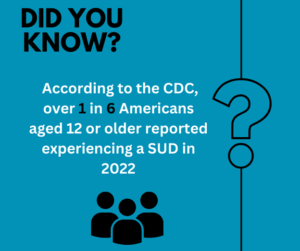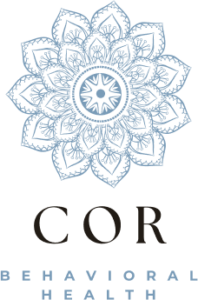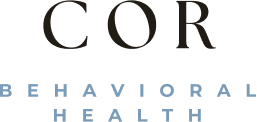
Overcoming drug and alcohol addiction is a challenging journey, but one that millions of Americans face each year. According to the National Survey on Drug Use and Health, over 20 million people aged 12 or older struggled with substance use disorder in 2019. If you or a loved one are battling addiction, know that you are not alone and that effective treatment options are available. At COR Behavioral Health in Hobe Sound, Florida, you’ll find comprehensive, evidence-based approaches to help you reclaim your life from addiction. Call us today at (888) 231-7973 or fill out our online contact form to take the first step.
What Is Drug and Alcohol Addiction?
A Chronic Brain Disorder
Drug and alcohol addiction is a complex, chronic brain disorder characterized by compulsive substance use despite harmful consequences. It rewires brain circuitry, altering decision-making, self-control, and stress response systems – making quitting extremely difficult without professional help. According to the 2023 National Survey on Drug Use and Health, 16.7% of Americans aged 12 and older battled a substance use disorder in the past year.
Challenging the Stigma
Addiction is not a weakness or moral failing – it’s a treatable medical condition influenced by a combination of genetic and environmental factors. Up to 60% of addiction risk stems from genetics and traumatic life events. With proper, evidence-based treatment tailored to individual needs, people can recover and achieve long-term sobriety.
The Path to Recovery
Overcoming addiction requires professional, comprehensive treatment delivered by accredited facilities offering evidence-based therapies like cognitive behavioral therapy alongside medication-assisted treatment when needed. Less than half of those seeking treatment complete the full program. Continued aftercare via peer support groups and lifestyle changes are crucial for maintaining sobriety long-term.
The Impact of Addiction on a Person’s Life
Relationship Strain and Breakdown
Substance abuse and addiction can severely harm personal relationships, leading to trust issues, conflict, and even abuse or violence. The secrecy surrounding addiction often breeds dishonesty and manipulation, eroding communication and emotional intimacy. Financial strain from prioritizing substance use over responsibilities is also common.
Mental Health Deterioration
Using drugs or alcohol as a coping mechanism for mental illness symptoms like depression or anxiety can ultimately worsen those conditions long-term. Substance abuse increases risks like psychosis, overdose, and worsening of co-occurring disorders – making comprehensive dual diagnosis treatment crucial.
Isolation and Neglect
As addiction intensifies, individuals often isolate themselves from family and friends, neglecting loved ones to prioritize using. This emotional detachment compounds relationship strain and damage. Loved ones may experience anger, resentment and trauma from the addict’s self-destructive behaviors.
The Difference Between Drug Dependence and Drug Addiction
Physical vs. Mental Reliance
Drug dependence refers to the physical symptoms like withdrawal and tolerance that occur when substance use is stopped. Addiction, however, involves compulsive behaviors and mental cravings, even when facing harm. It’s a chronic brain disease marked by changes in the brain’s reward pathways.
Dependence Isn’t Addiction
While dependence often co-occurs with addiction, it’s possible to be physically dependent without being addicted. Dependence alone indicates the body has adapted to a substance’s presence. But addiction centers on the loss of control and intense urges to use despite consequences.
Comprehensive Treatment Options for Drug and Alcohol Addiction
Individualized Care
Overcoming addiction requires a comprehensive, personalized approach tailored to each individual’s unique circumstances and needs. According to the CDC, effective treatment may involve a combination of medication, counseling, rehabilitation, and behavioral healthcare.
Medical Detox
For many, the first step is medical detoxification to safely manage withdrawal symptoms. This process is closely monitored by healthcare professionals to ensure a safe and comfortable transition.
Outpatient Programs
Outpatient programs like Partial Hospitalization (PHP) and Intensive Outpatient (IOP) offer structured support while allowing individuals to maintain daily responsibilities. These programs provide counseling, therapy, and relapse prevention strategies.
Inpatient Rehabilitation
For those requiring a more immersive approach, inpatient rehabilitation centers offer a temporary residential setting with 24/7 support. This allows individuals to focus solely on their recovery journey.
Mental Health Support
Addressing underlying mental health conditions is crucial in achieving long-term recovery. Integrated treatment plans incorporate therapies like cognitive behavioral therapy and medication management.
With a range of evidence-based options, comprehensive addiction treatment empowers individuals to reclaim their lives and achieve lasting sobriety.
Recognizing an Alcohol and Drug Problem
Signs of Dependence
Alcohol or drug dependence often starts gradually. Occasional use can spiral out of control, especially during stressful times. Early signs include changed eating/sleeping habits, hanging out with substance users, and relying on substances to relax.
As dependence grows, you may need larger doses, experience intense cravings, neglect responsibilities, or do risky things like driving impaired. Withdrawal symptoms often accompany attempts to stop.
Behavioral Changes
Family and friends frequently notice changes first – mood swings, personality shifts, isolation, or losing interest in activities. Legal troubles, work/school issues, and relationship conflicts are common. Despite these problems, people struggling with addiction find it extremely difficult to quit.
Seeking Help
Recognizing the problem is vital, but cutting down or stopping is challenging due to physical and mental changes caused by long-term substance use. Seeking medical help or calling a helpline can provide guidance on next steps for recovery. With professional support, people can break the cycle of addiction.

Getting Help for Alcohol or Other Drug Dependence
Recognizing the Need
Substance use disorders (SUDs) are treatable chronic diseases that can affect anyone, regardless of background. According to the CDC, over 1 in 6 Americans aged 12 or older reported experiencing a SUD in 2022. Overcoming the stigma and recognizing the need for professional help is crucial for recovery.
Treatment Options
Effective treatment is available and may involve a combination of medication, counseling, and therapy tailored to individual needs.Inpatient rehabilitation, outpatient care, and medication-assisted treatment like methadone or buprenorphine are proven approaches.
Ongoing Support
Recovery from SUDs is an ongoing process that often requires adjustments and relapse prevention strategies. Primary care clinicians play a vital role in monitoring progress, providing support, and connecting patients with resources like self-help groups to maintain long-term sobriety.
Drug and Alcohol Addiction: FAQs
What causes addiction?
Addiction has no single cause, but rather stems from a combination of genetic, environmental, and psychological factors. Brain chemistry, trauma, mental health issues, and social influences can all contribute to substance use disorders developing over time.
What are common signs of addiction?
Signs include increased tolerance, withdrawal symptoms, loss of control over substance use, neglecting responsibilities, and continued use despite negative consequences. Long-term addiction can severely impact one’s physical and mental health, relationships, and overall well-being.
What is withdrawal?
Withdrawal refers to the symptoms that occur when decreasing or stopping substance use after developing a physical dependence. Symptoms like anxiety, nausea, tremors, and cravings can arise, underscoring the importance of medically-supervised detox.
Is inpatient or outpatient treatment better?
The ideal treatment setting depends on the individual’s needs, severity of addiction, and personal circumstances. Inpatient rehab provides intensive, round-the-clock care, while outpatient allows more flexibility to manage other responsibilities.
Conclusion
As you navigate the challenging journey of overcoming addiction, remember that comprehensive treatment options are available to support your recovery. By combining evidence-based therapies, medical interventions, and holistic approaches, COR Behavioral Health in Hobe Sound, Florida offers personalized care to address the complex nature of substance use disorders. With dedication and professional guidance, you can achieve lasting sobriety and reclaim control of your life. According to the National Institute on Drug Abuse, treatment can help up to 60% of individuals maintain long-term recovery. Take the first step today by reaching out for help – a brighter, healthier future awaits you on the other side of addiction.



